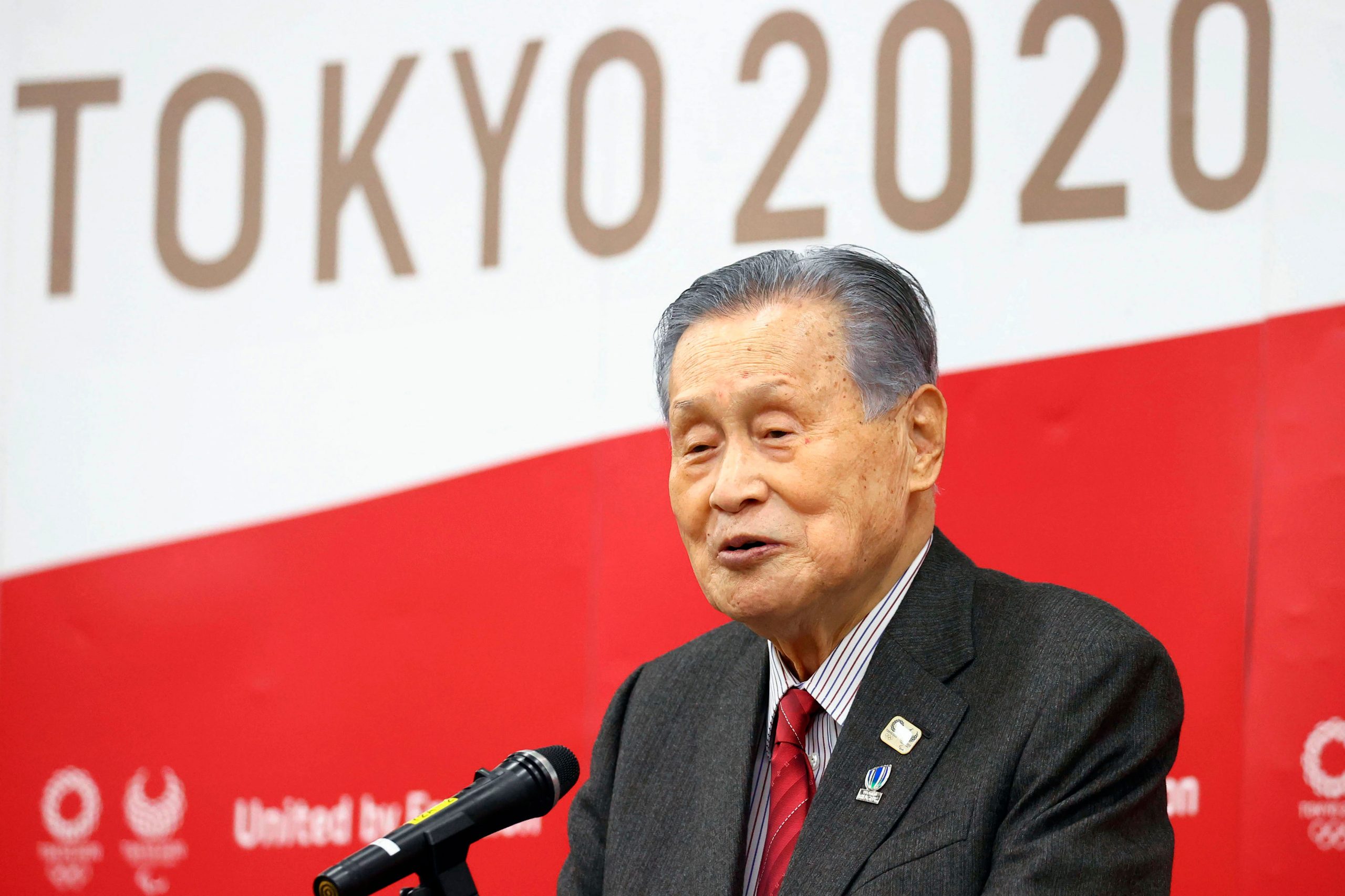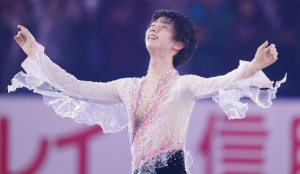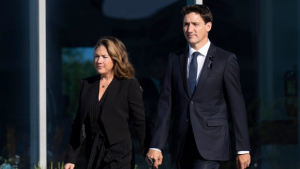Tokyo Olympics boss Yoshiro Mori, whose sexist remarks and refusal to resign have sparked outrage in Japan, is a former prime minister known for embarrassing gaffes who led one of the country’s least popular governments ever.
From continuing a game of golf after a deadly marine accident off Japan’s coast to publicly sneering at the performance of a popular Japanese figure skater, the 83-year-old is no stranger to public missteps.
On Thursday he apologised for saying women “have difficulty” speaking concisely, but then dug a deeper hole when he insisted he had heard complaints that women speak at length.
Mori served as prime minister for just one year between April 2000 and 2001, a short term marked by controversy.
Soon after taking office he declared Japan “a country of gods centred around the emperor” — a highly controversial statement seen as potentially violating the constitution, which separates religion and politics.
As prime minister, Mori started with an approval rating of around 30 percent that slid downwards during his term, partly due to his repeated gaffes.
During an election campaign, he said he hoped swing voters who might not support his ruling Liberal Democratic Party (LDP) would “sleep in on polling day”.
His comments backfired and were seen as contributing to a decline in the number of seats won by the party in the lower house.
And towards the end of his term he was widely criticised for continuing a golf game after being informed of the accidental sinking of a Japanese ship by a US submarine.
Since retiring from politics in 2012, Mori has been heavily involved in promoting sports in Japan and played a key role in bringing Asia’s first Rugby World Cup to the country in 2019.
An avid rugby fan and amateur player himself, he served as chairman of the Japan Rugby Football Union for 10 years until his term expired in 2015.
He subsequently served as honorary chairman of the organisation but quit just months before the Rugby World Cup, citing health problems.
Mori has spoken publicly about his battle with cancer, even citing his health struggles as reason to be hopeful about the Games going ahead following their postponement in 2020.
“We have no choice but to have hope. I myself suffered cancer… But I was saved by a new drug,” he said then.
“I am here, allowed to live… Let us hope for these things.”
His remarks have not always been so tactful, and he drew fire during the 2014 Sochi Winter Olympics for pouring scorn on Japanese figure-skating heroine Mao Asada following a disastrous routine in Russia.
“That girl, she always falls over whenever it’s important,” Mori sniped amid widespread disappointment after Asada slipped on her trademark jump to end in lowly 16th position.
Media, fans, and fellow athletes hit out at Mori after he said the out-of-form skater should have withdrawn from the team competition.
“She slipped over just like that. We knew Japan couldn’t win the national team competition,” he said.
“She wouldn’t have had to embarrass herself.”
More recently, he raised eyebrows in 2020 when insisting he would work to stay free of coronavirus — but without wearing a mask.
The comments were slammed as out-of-touch, and Mori subsequently began wearing one.
And on Tuesday, he caused an upset by declaring the delayed Games would go ahead this year “however the coronavirus (pandemic) evolves.”
His remarks came with 80% of Japanese opposed to holding the Games this year and parts of the country under a virus emergency.







